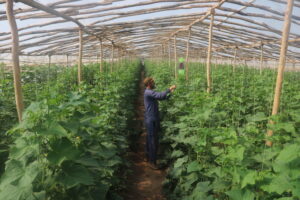KABUL (SW) – On the border with Iran, the Nimroz province of Afghanistan is home to a number of aspiring migrants as well as dejected returnees and deportees.
Seema Amin is an Afghan woman who has spent several years in different European countries as migrant, and now it has been two years since she returned to the country of her own free will. She said she no longer wanted to experience the bitter taste of migration.
“I lived as migrant in Europe for about nine years and I was not feeling well at all during that time,” said Seema. “Every moment, I felt a strange nostalgia, I thought I was getting worse day by day. Eventually, when I came to Turkey and went to the doctor, he told me that I was very depressed and he treated me.”
Seema added that after going to the doctor and learning that she had depression, she decided to return to the country to be able to save herself from this mental disorder.
Drug addiction on the heels of irregular migration
Continuing with the job of choice during migration
“When I meet any of the women who have returned from migration, each of them have felt the same pain. The consequences of undocumented migration have led to a number of migrants becoming addicted to drugs in addition to depression”, she said.
Fatema is a woman who has become addicted to drugs during migration.
Narrating her ordeal, she said: “I was very depressed and homesick there, I did not go out with anyone, I did not want to go anywhere at all and no one would come to my house and my husband would bring the drugs. I also became addicted over time, we just thought about making money and taking drugs every day and we did not think about educating our children at all. All we thought about was finding the drug, and that was it.”
According to reports, most people who have migrated to other countries, especially Iran, without legal documents, have become addicted to drugs.
Meanwhile, officials from the Nimroz Immigrants and Returnees Department say that with the help of partner institutions, returnees will be fully cared for.
Mohammad Salim Qazi Khel, head of Nimroz Immigrants and Returnees, said that when a person returns to the country, they work with the partner institutions for his or her welfare.
“When a person returns, due to psychological problems and legal issues, the partner institutions cooperate with us and we refer those who come to us and tell us their problem to the psychological departments, and people who have become addicted to drugs get treated in the addiction treatment unit for 45 days, after which they are released and returned to the community safe and sound.”
Qazi Khel said that in the last six months, they have supported up to 200 families and provided them with jobs.
However, analysts believe that the decades of war in the country, unemployment and poverty have caused many citizens to leave the country.
Syed Ashraf Sadat, a civil activist, said irregular migration has dire consequences. He said although migration promotes cultural exchanges, but it also reinforces the negative and anomalous social aspects in the society.
“Unfortunately, the negative consequences of migration can be the emergence of foreign cultures and the promotion of negative social trends, and this can create a cultural problem and social vacuum for the new generation and for the returnees whether they like it or not,” said Hayat Hamid, a social affairs expert. “They themselves bring about achievements and norms that indirectly affect the culture of a society over time”, he added.
According to experts, with the recent return of migrants to the country, Nimroz province is witnessing a high number of drug addicts.
ENDS







